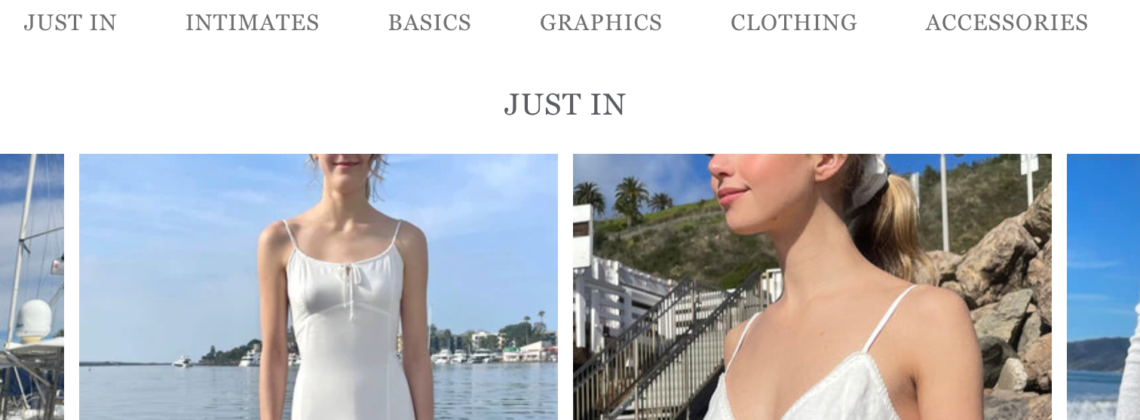
Is Brandy Melville Ethical?
Summary
Determining whether Brandy Melville is an ethical brand is not a straightforward matter. The brand has faced criticism for its “one size fits most” policy, which many view as lacking inclusivity and promoting a narrow beauty standard. Additionally, there is limited information available about its labor practices and environmental impact. This makes it difficult to assess fully Brandy Melville’s commitment to ethical principles.
While the brand is popular for its trendy designs, it falls short in transparency and inclusiveness, which are key aspects of ethical behaviour in the fashion industry. Based on the available information, Brandy Melville could improve its ethical stance by addressing these issues.
Pros
- Trendy and Popular: Brandy Melville offers fashionable and desirable clothing that appeals to a young audience.
- Cultural Influence: The brand has a significant impact on teen fashion trends, especially through its strong social media presence.
Cons
- Limited Size Range: The “one size fits most” policy excludes a large portion of potential customers, promoting a narrow standard of beauty.
- Lack of Transparency: There is limited information on Brandy Melville’s labor practices and environmental policies, raising concerns about ethical standards.
- Diversity and Inclusivity: The brand has been criticized for not being inclusive in its marketing and product range, failing to represent a diverse customer base.
Brandy Melville is a fashion brand that’s popular with teenage girls and young women. The brand is known for its casual and trendy clothing that’s inspired by LA’s laid-back lifestyle. They offer limited sizes under the “one size fits most” policy, which has garnered both appreciation and criticism. Their collection has a mix of comfortable basics, vintage-inspired pieces, and stylish accessories.
Brandy Melville’s minimalist aesthetic and California vibes are showcased on social media, where it has gained a significant following. However, some people have criticized the brand for not being size-inclusive and lacking diversity in its representation.
Brandy Melville is a fashion brand that is known for its trendy designs and “one size fits most” policy. However, the brand has been at the center of controversy when it comes to ethical considerations.
This review aims to examine the different aspects that contribute to the debate on whether Brandy Melville is an ethical brand. The review will touch on areas such as labor practices, environmental impact, inclusivity, and overall moral stance.
Ethical Labor Practices
When discussing whether Brandy Melville is ethical, it’s crucial to start with its labor practices. Ethical labor practices are fundamental to any brand’s moral standing, encompassing fair wages, safe working conditions, and respecting workers’ rights. While specific details about Brandy Melville’s factories and labor conditions are not widely publicized, the fashion industry at large faces criticism for exploitation and poor working conditions.
Without transparent evidence of Brandy Melville adhering to ethical labor standards, there remains a question mark over its ethical stance in this area.
Inclusivity and Diversity
Inclusivity and diversity are significant markers of a brand’s ethical considerations. Brandy Melville’s “one size fits most” approach has been criticized for excluding a wide range of body types, propagating a narrow and unrealistic standard of beauty. This practice can be seen as unethical because it fails to acknowledge and cater to the diverse shapes and sizes of its potential customer base, leading to feelings of exclusion and inadequacy among those who do not fit into its limited size range.
In terms of diversity and representation within its marketing and models, Brandy Melville also faces scrutiny. Ethical brands strive to reflect the diversity of their audience in their marketing efforts, something that Brandy Melville could improve upon to enhance its moral standing.
Environmental Impact
The fashion industry is one of the largest polluters globally, and ethical brands are increasingly taking steps to reduce their environmental impact. This includes using sustainable materials, minimizing waste, and promoting recycling and longevity of garments. Brandy Melville’s environmental policies and practices are not prominently featured in their public communications, making it challenging to assess their ethical standing in this regard.
An ethical brand should be transparent about its environmental footprint and actively work towards sustainability, areas where Brandy Melville could potentially strengthen its ethical credentials.
Moral and Ethical Stance
Evaluating Brandy Melville’s moral and ethical stance involves looking at its overall contribution to society and culture. Fashion brands have a powerful platform to influence societal norms and values. Brands that choose to promote positive messages, such as body positivity, diversity, and environmental responsibility, are often viewed as more ethical.
Brandy Melville’s approach to fashion, heavily centered on a specific aesthetic and lifestyle, raises questions about its commitment to broader societal and moral issues. While catering to a particular market segment is not inherently unethical, the brand could embrace a more inclusive and responsible stance to improve its ethical image.
Consumer Responsibility
The ethics of Brandy Melville also intersect with consumer responsibility. In an age where consumers are increasingly aware of the social and environmental implications of their purchases, the demand for ethical fashion has grown. Consumers questioning whether Brandy Melville is ethical may also reflect on their role in supporting brands that align with their values. Ethical consumption involves researching, supporting, and advocating for brands that prioritize ethical practices across the board.
Also read: Is Bloomchic Ethical?
Conclusion
The question of whether Brandy Melville is ethical is complex and involves multiple aspects of its operations and values. Although the brand is popular for its trendy designs and aesthetic appeal, it has faced criticism about inclusivity, transparency in labor practices, and environmental impact. To be considered ethical, Brandy Melville needs to address these issues with clear policies, actions, and transparency.
Consumers can play a vital role in pushing for these changes by choosing where to spend their money and supporting the values they believe in. As ethical fashion continues to evolve, it remains to be seen how Brandy Melville will adapt and whether it will take steps to improve its ethical standing among consumers and critics.

